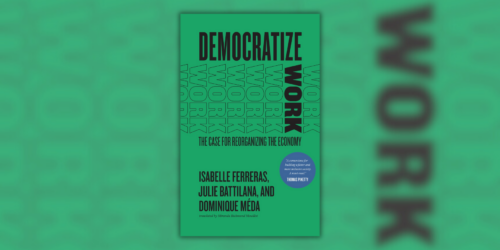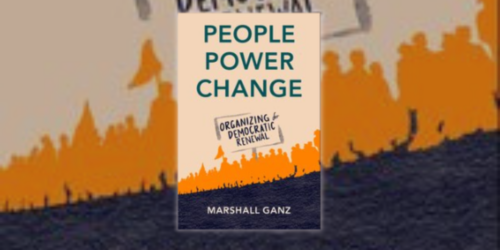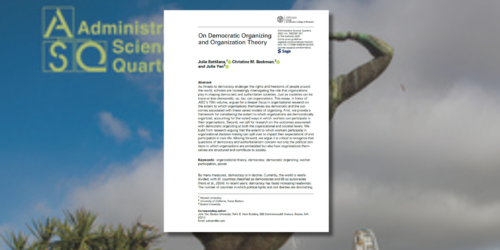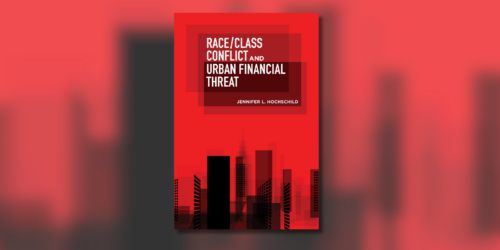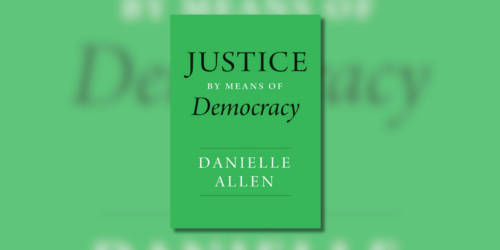
Article
The Resistance Reaches into Trump Country
As organizers for No Kings 2 seek historic turnout on October 18, the broader pro-democracy movement has already broken new ground.
Democracy demands new ideas. We have answers.
Article
As organizers for No Kings 2 seek historic turnout on October 18, the broader pro-democracy movement has already broken new ground.
Book
In this volume, Julie Battilana and her co-authors compellingly argue that workplace democracy holds the key to restoring balance between the economy and society.
Book
In this book, Power, for All: How It Really Works and Why It’s Everyone’s Business, Julie Battilana aims to make power more accessible to all kinds of people and empower them to affect positive and long-lasting change
Article
In this article, Ash Center’s Marshall Ganz examines common misconceptions in the social sector about power and structural change.
Book
In People, Power, Change, Marshall Ganz explores how ordinary people can join forces to transform the resources they have into the power needed to create meaningful change in their lives.
Additional Resource
In his working paper, Eric Maskin and Partha Dasgupta show that, among all voting rules, majority rule is uniquely characterized by strategy-proofness, the Pareto principle, anonymity, neutrality, independence of irrelevant alternatives, and decisiveness.
Article
In this recent essay, as threats to democracy grow globally, Julie Battilana — marking ASQ’s 70th volume — calls for organizational research to more deeply examine how democratic or authoritarian organizations themselves are, and the consequences of these differing models.
Book
In Race/Class Conflict and Urban Financial Threat, political scientist Jennifer L. Hochschild analyzes key policies in four major U.S. cities to explore when race and class influence urban politics, when they don’t, and what other factors can drive city policy decisions.
Book
In this book from leading thinker Danielle Allen, a bold and urgent articulation of a new political philosophy: power-sharing liberalism.
Article
In this article, Maya Sen argues that federal courts are unlikely to protect democracy from threats posed by Trump and Musk, as the judiciary’s power to check executive overreach is limited and increasingly challenged.
